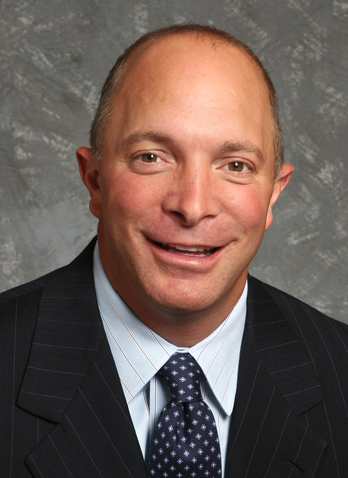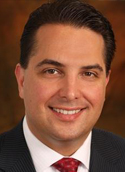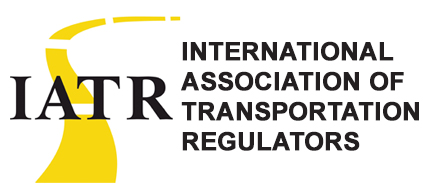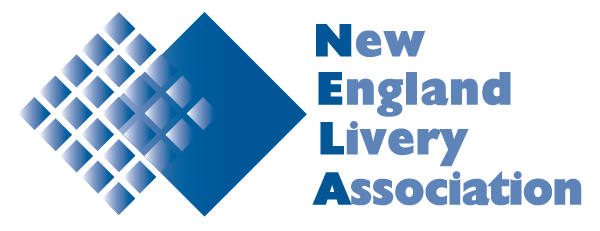- Details
- Category: Industry News
Last week, the National Limousine Association (NLA) put out a call to action to its members to reach out their congressional representatives in support of proposed changes to the Paycheck Protection Program. In less than a week, NLA President Robert Alexander of RMA Worldwide reported that they had seen more than 1,800 responses. In a process that takes only about a minute to complete, members are connected to their representatives.
The PPP has been a lifeline for numerous small business nationwide, although it has been a bit imperfect in how it applies to our industry. The chief issues regarding forgiveness eligibility have been the eight-week period for usage of funds and the requirement of spending 75 percent on salaries and benefits.
But good news: The House passed its version of reforms in the Paycheck Protection Program Flexibility Act of 2020 (H.R. 7010) on May 27, which could offer the following relief:
- Reducing 75/25 ratio (payroll/utilities and rent) to 60/40 for more flexibility with loan forgiveness
- Extending deadline to rehire from June 30 to Dec. 31
- Increasing loan maturation from two years to five years
- Extending the covered period for forgiveness from eight weeks from the date of origination to the earlier of 24 weeks from the origination date or December 31, 2020
 NLA President Robert Alexander
NLA President Robert Alexander
The Senate is considering its own version of the bill, which is expected to be voted on this week. Vitally, the Senate bill does not include the modified 60/40 ratio, so more work is needed.
“While that is a great initial push, it is vital that as many people as possible use this tool to help make our collective industry voice even louder,” Alexander wrote in his weekly President’s Letter to members. “If you have already shared our requests with your representatives, it is greatly appreciated. I hope you have shared this call to action on your social media and with your colleagues, affiliates, and employees.”
The link to the call to action is available here.
The NLA also has an extensive COVID-19 resource page, including near daily updates on legislative efforts through its lobbying firm Cornerstone Government Affairs, available here.
[06.01.20]
- Details
- Category: Industry News
By Matt Daus
Municipalities across the world are facing the same problems during the COVID-19 pandemic, and deciding where the government regulator needs to step in to mandate new public health and safety requirements is a question on everyone’s mind. The most effective help for transportation providers and drivers is financial relief and assistance, yet unfortunately, many transportation agencies do not even have the power to solve some of these pressing issues, such as obtaining grants and loans, or insurance premium refunds. They can, however, can lend a helping hand to waive fees and reduce costly red-tape and cumbersome licensing processes.
 IATR President Matt Daus
IATR President Matt Daus
On April 30, 2020, hundreds of regulators and industry members from around the world attended the International Association of Transportation Regulators’ (IATR’s) COVID-19 webinar. IATR is currently drafting best practices and regulations that act as a guide for regulators around the world to implement and has convened a task force to help craft a plan for long- and short-term needs. A recap of the meeting, featuring an all-star panel that included Robert Alexander of the NLA, Peter Pantuso of the American Bus Association (ABA), and Tom Arrighi of The Transportation Alliance (TTA), can be read here. The webinar provided a snapshot of the various initiatives taken by agencies happening around the world, including notable actions from agencies in major U.S. cities. The full webinar is available here.
Federal Motor Carrier Safety Administration (FMCSA): FMCSA Acting Administrator Jim Mullen explained that Electronic Logging Device (ELD) requirement exemptions are extended to drivers who use short-haul, timecard exemptions, drivers conducting a drive-away-tow-away operation, and drivers of vehicles manufactured before the model year 2000. The FMCSA has been working with FEMA and the Department of Homeland Security (DHS) to distribute 1 million cloth masks to drivers at state rest areas in the U.S. and directly through the largest motor carriers. As states or regions begin to reopen, the FMCSA may issue declarations that are regional or state-based, but will likely defer to CDC guidelines regarding vehicle cleanliness, face coverings, and temperature checks and not issue its own guidance (no final decision has yet been made yet).
New York City: Newly appointed New York City Taxi & Limousine Commission (TLC) Commissioner Aloysee Heredia Jarmoszuk said that TLC has coordinated a massive informational campaign, assisting licensees with applications for NYC small business assistance programs and providing them with information on other public assistance programs, including food assistance, unemployment, and mental health programs. The TLC also created an innovative TLC food delivery program called “Get Food NYC,” which has recruited drivers for food delivery services at $53 per delivery route ($40 for the six food deliveries in each route, plus $13 for fuel. The program has helped provide income to struggling drivers through public service and has coordinated the delivery of more than 9 million meals as of April 30.
Washington, D.C.: David Do, director of the D.C. Department of For-Hire Vehicles (DFHV), indicated that taxi trips are down 96 percent, and TNC trips are down 84 percent, since March 2020. To combat the massive dip in ridership, DFHV has focused on providing income to struggling drivers by repurposing its microtransit program to provide trips to hospital workers in partnerships with taxi companies and Via for a $3 fare. Similar to NYC, DFHV is facilitating more work for struggling drivers by allowing them to sign up with commercial food delivery companies while collaborating with the D.C. Department of Health and the D.C. Department of Aging and Community Development to subsidize their food delivery programs with more drivers.
Chicago: Rupal Bapat, deputy commissioner of the Chicago Department of Business Affairs and Consumer Protection (BACP), discussed a $100 million loan program that provided COVID-19 relief to small businesses. Additionally, Chicago implemented financial support specifically geared towards wheelchair accessible transportation services, and eliminated the passenger portion of all paratransit taxicab fares as a way to encourage ridership. BACP also partnered with Uber and Lyft to provide free rides to victims fleeing domestic violence.

Los Angeles: Policy & Enforcement Administrator Jarvis Murray of the Los Angeles Department of Transportation (LADOT) spoke of his agency’s focused response on Non-Emergency Medical Transportation (NEMT) taxicabs. Assisting those with medical and physical needs has been a priority for many agencies during the pandemic; LADOT has taken action to streamline vehicle additions and driver permitting for ambulance companies as this sector has remained busy, but employee retention has been a struggle during the pandemic.
IATR Survey: IATR also recently conducted a regulator survey, which included almost every major city and/or state in the U.S. and Canada. Among the key findings:
Operational Relief Measures
- 73 percent of respondents indicated their offices had closed, allowing employees to work from home. As agencies closed their offices, licensing procedures become increasingly difficult to manage.
- 64 percent reported relief measures for licensees, including measures taken for licensing, which included the extension of licenses, online license renewals, and termination of municipal licensing services during the pandemic.
- 45 percent of agencies also deferred fees to provide relief to licensees in their respective jurisdictions. Enforcement, however, has drastically decreased throughout the entire industry.
- 37 percent indicated they have suspended all enforcement measures
- 17 percent have stopped enforcement measures taken concerning insurance
- 18 percent reported increased enforcement on overcharging
- 27 percent reported increased enforcement of “clean vehicle” rules
Shared Mobility
- 60 percent reported that they have not discouraged, banned, or limited group riding or ridesharing services
- 7 percent have officially banned ridesharing
- 33 percent have discouraged it
Driver Health & Safety
- 87 percent reported that licensed drivers are cleaning vehicles before and after trips, or in-between trips
- 80 percent of those reported that drivers are bringing their own cleaning supplies
IATR has a COVID-19 resource page, which is available here.
Matt Daus is a partner with law firm Windels Marx and the former commissioner of the New York City Taxi & Limousine Commission. He can be reached at mdaus@windelsmarx.com.
[06.01.20]
- Details
- Category: Industry News
To keep the New England Livery Association (NELA) membership informed and active, NELA Executive Director Rick Szilagyi spearheaded a series of online meetings throughout the month of May for operators and vendors to discuss issues relating to the COVID-19 crisis.
 NELA Executive Director Rick Szilagyi
NELA Executive Director Rick Szilagyi
Beginning with a “virtual town hall” exclusively for its Connecticut members on May 1, Szilagyi hosted close to 10 operators sharing their experiences and plans dealing with the industry shutdown. NELA Board Members Charlie Wisniewski of Teddy’s Transportation, Teale Smith of Maine Limousine Service, and Joe Cardillo of AOT Global were strong advocates for the session and offered their perspective on industry issues and programs such as the Paycheck Protection Program (PPP), Economic Injury Disaster Loans, and the Families First Coronavirus Response Act.
“Kudos to the operators that took part and made the hour-long session transpire as we had hoped,” says Szilagyi. “While the goal was to hold a session for Connecticut members, most of the specific issues we are all experiencing apply nationwide. The participants made the session a success, and set the stage for more.”
Based on the success of the May 1st Connecticut session, and with a quick analysis of the number of Connecticut attendees versus the number of invitees, the NELA Board approved a plan to hold six more online meetings across the New England states. The Maine/Vermont session was held on the morning of May 20, while Rhode Island operators were engaged that afternoon. The New Hampshire session was held on May 21, with three Massachusetts sessions on May 22.
Most sessions were in the half-dozen operator range, which Szilagyi says was the goal. Dividing the meetings by locale eliminated the awkward, overcrowded Zoom meeting rooms everyone has become familiar with and allowed for greater participation and more intimate conversations.

“Splitting Massachusetts into three sessions made sense,” says Szilagyi. “Having 15-20 people on such an online meeting would have been too difficult to manage, and resulted in less benefits to the individuals who attended. We achieved productive numbers on these calls from the standpoint of value and manageability. We can all read the material bombarding our inboxes each day, but having the opportunity to interact with peers on the challenges and opportunities is of much greater value.”
While PPP and EIDL remained the chief hot-button topics throughout the month, the focus of how to use those funds shifted as the meetings progressed. Another issue discussed was unemployment payments. With many chauffeurs and in-house staffers making more money on unemployment, operators have had difficulty bringing back employees as work has increased somewhat. Owners are now faced with a dilemma of “turning in” their otherwise loyal staff.
PPE was also discussed during the sessions, including the potential of installing soft or hard partitions. With that topic, came the potential increase in liability from installing after-market materials which could interfere with airbag deployment and become dangerous in the event of an accident, which led of course to recommendations for consulting with insurance agents.
NELA’s next quarterly meeting will be held June 9 via webinar from 2-4 p.m. Szilagyi is encouraging all members and vendors to register in advance. He is currently at work building a slate of topics and securing presenters. Guests will include National Limousine President Robert Alexander of RMA Worldwide and Ellen Kearns of Constangy, Brooks, Smith & Prophete, which specializes in labor and employment law. The meeting is sponsored by Dedicated Funding.
Visit nelivery.org for more information.
[05.29.20]


